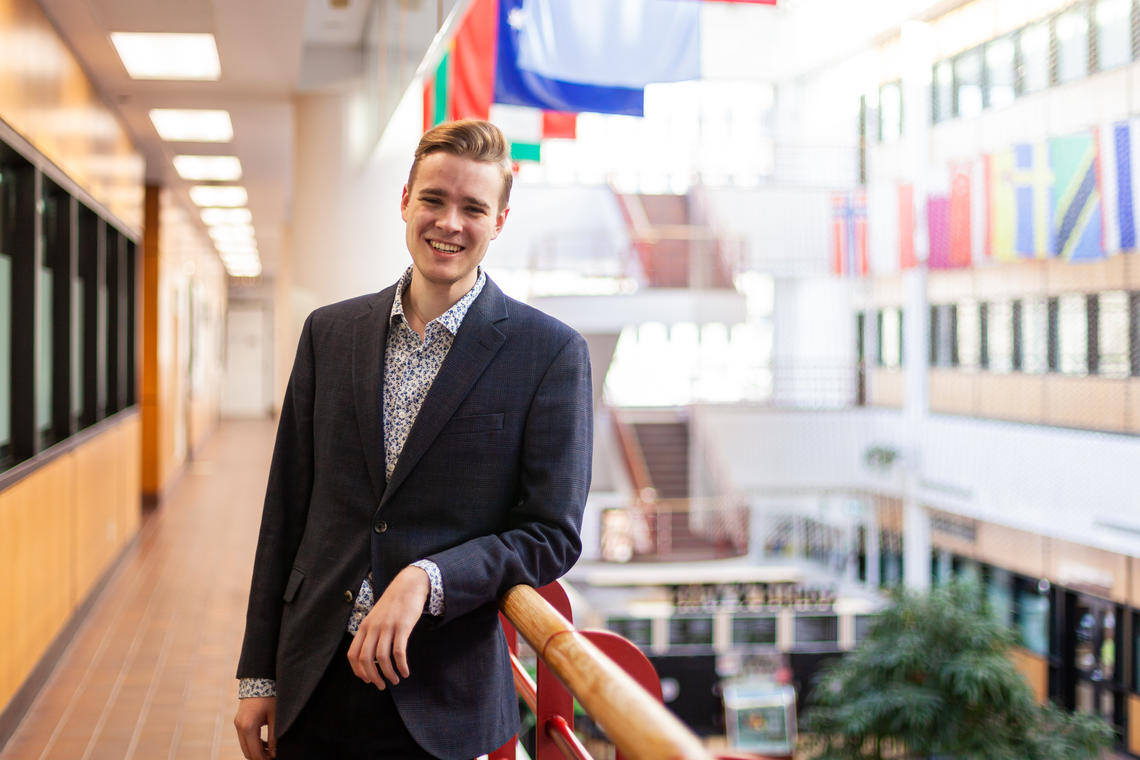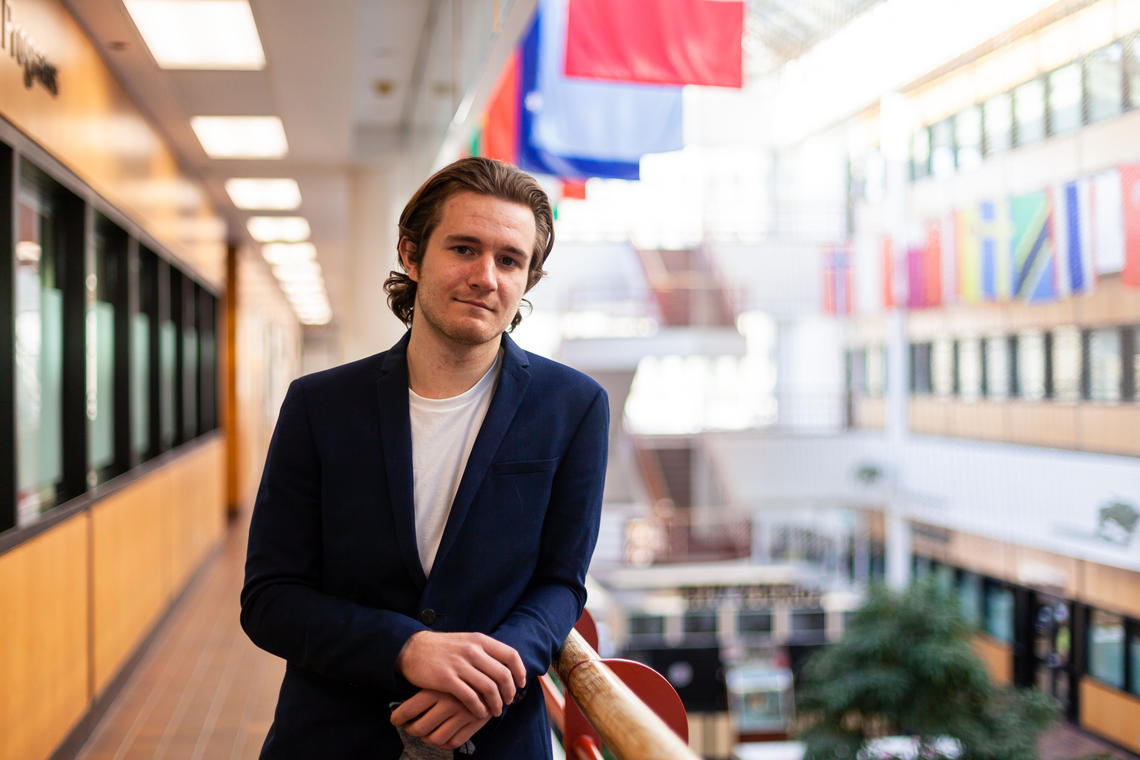Feb. 16, 2021
UCalgary business students help Canada achieve net-zero goals

Two Master of Management students from the Haskayne School of Business at the University of Calgary are working to create a low-carbon future through cost analysis and market research of carbon capture, utilization, and storage (CCUS) technologies.
Both students are taking advantage of MITACS Internships that are providing them first-hand experience with technologies developed to reduce emissions.
Robert Carter, one of the students, works with CMC Research Institutes (CMC) as an emissions technology commercialization analyst through the MITACS Business Strategy Internship Program. Carter conducts cost analysis and market assessment of emissions technologies. His work involves large amounts of research, and constant communication between clients and his colleagues at CMC.

Robert Carter, student in the Master of Management at the Haskayne School of Business, and intern at CMC Research Institutes through the MITACS Business Strategy Internship Program.
Mariah Lee photos
“Carbon capture, utilization, and storage is a brilliant way to combat climate change,” says Carter. “Joining the CMC team seemed like an ideal way to make a difference.” According to Carter, this position gave him the opportunity to apply the knowledge gained from his UCalgary geophysics undergraduate degree, and his current business program.
Much of the research Carter focuses on is done at UCalgary’s Containment and Monitoring Institute, a unique Field Research Station (FRS) located near Brooks, Alta. CaMI, a partnership with CMC, is known globally for its ability to conduct in-field testing to accelerate the development and deployment of technologies to measure, monitor, and verify secure underground storage of CO2.
The FRS is supported through the UCalgary's Global Research Initiative in Sustainable Low-Carbon Unconventional Resources, a program funded through the Canada First Research Excellence Fund. It has been an important site for researchers testing new CCUS technologies.
Carter’s work looks at the various applications of fibre optics in CO2 sequestration, including temperature measurement and vibration sensing.
“Currently I’m looking into the use of distributed acoustic sensing (DAS) and distributed temperature sensing (DTS) data in CCUS,” he said. “I’m also doing some cost comparisons of traditional vertical seismic profiling (VSP) and DAS VSP, work that contributes to better understanding the impact carbon has on our environment.”
Eric Salkauskas, also hired through the MITACS Business Strategy Internship Program, says he wants to incorporate his business knowledge with his passion for sustainability in his role as a technology and market analyst for CMC.

Eric Salkauskas, student in the Master of Management at the Haskayne School of Business, and intern at CMC Research Institutes through the MITACS Business Strategy Internship Program.
“This internship is in perfect alignment with what I wanted to do in sustainability, and the skills I wanted to learn from a business point of view,” says Salkauskas. “My current projects include working with ZoraMat Solutions to identify market opportunities in commercializing their carbon capture technology, and working on a Trade Commissioner Service project outlining how Canada is a global leader in the CCUS market.” Startup ZoraMat Solutions is a technology that was born in a UCalgary chemistry lab.
According to CMC’s programs and partnerships director Brian Mellor, part of the organization’s mandate is to train and develop highly qualified professionals to be marketable in the emerging low carbon economy.
“We offer an experience to work with leading experts in industrial emissions management,” says Mellor. "They are helping develop solutions that will reduce the industry’s impact on climate change, which is arguably the greatest challenge of our time.”
Salkauskas says helping create a sustainable and prosperous future has been his compass in everything he decides to do in life. “The only thing that has ever made any sense to me in terms of a career is being able to help make a difference in people's lives, especially those in hopeless situations.
“I strive to live minimally, avoid materialism, reduce energy use, while implementing efficient technologies where I can within my household. Every career choice I have made thus far has been done with sustainability in mind.”
In the end, Carter wants to do his part in helping Canada achieve its climate goals. “I want CMC to be known as an organization that is actively working to reduce Canada’s carbon footprint, and to be recognized as a company that helped Canada reach its emissions targets,” he says. “My goal is to come up with a system of technologies that will aid emitters in efficiency and allow them to cost-effectively store and monitor the CO2 they produce.”






